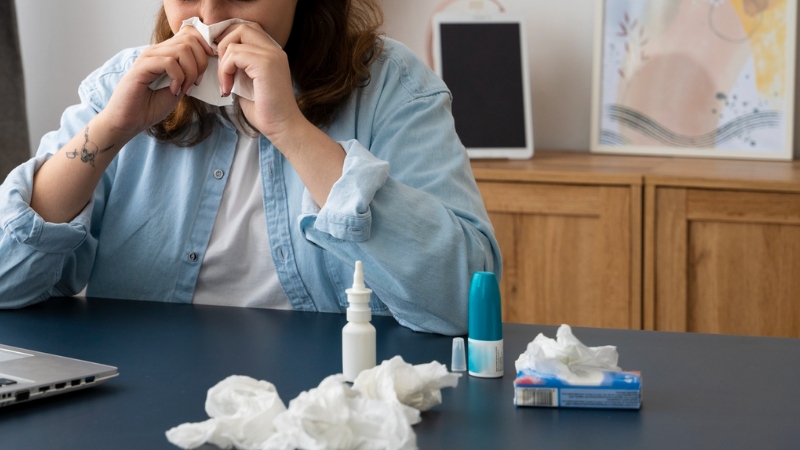Sinus and Allergy Care"Specialized Solutions for Respiratory Health and Allergen Management."

Our medical center specializes in offering complete care for sinus and allergies, treating a variety of nasal and respiratory conditions for better health. Understanding how sinus and allergy disorders affect day-to-day functioning, we provide diagnosis, treatment, and aftercare. This section will discuss the importance of Sinus and Allergy Care, the conditions it treats, possible concerns, and the unique qualities that set us apart as a top provider of top-notch otolaryngology care.
What Is Sinus and Allergy Care?
A specialty medical service called Sinus and Allergy Care is dedicated to the diagnosis and treatment of sinus and allergy-related disorders. This include treating allergic rhinitis, sinus infections, and other sinus-related conditions in order to alleviate symptoms and enhance general respiratory health.
Why Is Sinus and Allergy Care Essential?
- Diagnosis and Treatment: Allergies and Sinus Accurate diagnosis and successful treatment of sinus-related illnesses and allergic reactions require careful attention. This entails figuring out what triggers them and putting the right remedies in place.
- Symptom Relief: Sinus and Allergy Care helps people with symptoms like sinus pressure, sneezing, nasal congestion, and itchy eyes. Its goal is to make people feel more comfortable overall.
- Preventive Measures: Allergies and Sinus Treatment involves managing allergic reactions and preventing recurrent sinus infections. This could entail immunotherapy, allergy avoidance techniques, and lifestyle changes.
- Enhanced Respiratory Health: This specialist care helps improve respiratory health by treating sinus and allergy problems and lessening the frequency and intensity of symptoms related to allergies and sinusitis.
Possible Risks:
Allergies and Sinus Although most medical procedures are low-risk, some interventions, like immunotherapy or allergy testing, may cause moderate discomfort or allergic reactions in those receiving the care. Patients receive thorough explanations of these dangers, and medical professionals take precautions to reduce negative outcomes.
Treatment Steps in Sinus and Allergy Care:
- Comprehensive Evaluation: To determine whether the problem is connected to allergies or sinuses, a complete review of medical history, symptoms, and any necessary diagnostic testing come first in the procedure.
- Allergy Testing: Allergy testing may be done on suspected allergy sufferers to determine which allergens cause their symptoms.
- Medical Management: Medications such antihistamines, decongestants, or nasal corticosteroids may be prescribed as part of medical care in order to reduce inflammation and relieve symptoms, depending on the diagnosis.
- Immunotherapy (if needed): People with allergic rhinitis may benefit from immunotherapy, also referred to as allergy shots. To desensitize the immune system, allergens must be gradually exposed to.
- Sinusitis Treatment: Antibiotics for bacterial infections or other drugs to lower inflammation and alleviate symptoms can be used to treat sinusitis.
- Lifestyle Recommendations: Healthcare professionals provide lifestyle advice, such as techniques for avoiding allergens, good nasal hygiene, and changes to the surroundings to reduce triggers.
Our complete solutions for those with sinus problems and allergic responses are the goal of our Sinus and Allergy Care services. Our healthcare specialists prioritize providing accurate diagnosis, individualized treatment strategies, and continuous support to enhance the quality of life for individuals suffering from sinusitis and allergies. We are here to support you on your path to respiratory wellness, whether you're looking to manage symptoms or investigate preventive methods.
Top Asked Questions and Answers:
FAQ (Frequently Asked Questions):
+91-9144411108
Emergency Cases

